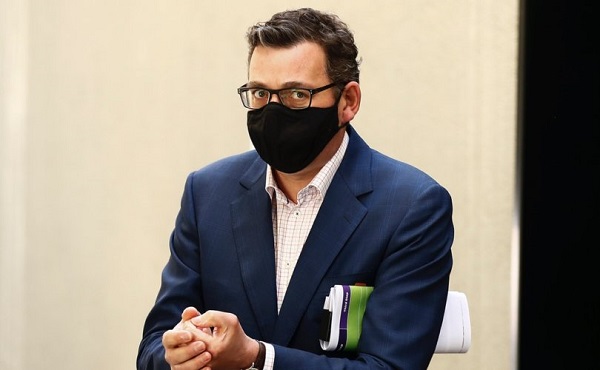Opinion
April 18 2017 Red Deer’s financial statement, presented to council, showed huge population decline.
Business
After successful anti-American election campaign, Carney pivots to embrace US: Hails Trump as a “transformational president”
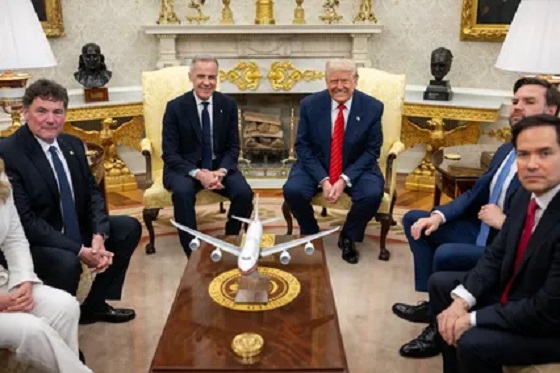
 MxM News
MxM News
Quick Hit:
Canadian Prime Minister Mark Carney met with President Donald Trump at the White House on Tuesday and praised the American leader as a “transformational president” with a relentless focus on workers, border security, and combatting fentanyl.
Key Details:
-
In front of reporters in the Oval Office, Carney said Trump was “focused on the economy, with a relentless focus on the American worker, securing your borders… ending the scourge of fentanyl and other opioids, and securing the world.”
-
The newly elected Canadian leader said he intends to implement a similar agenda in Canada, including heightened attention to border security, defense, and Arctic development.
-
Despite past trade friction between the two countries, Carney voiced confidence in the future of U.S.-Canada relations, stating, “We’re stronger when we work together… I look forward to addressing some of those issues that we have.”
Diving Deeper:
Canadian Prime Minister Mark Carney offered striking praise for President Donald Trump during a Tuesday visit to the White House, calling him a “transformational president” who has reshaped the global conversation on the economy, national security, and public health. Speaking alongside Trump in the Oval Office, Carney lauded the president’s focus on protecting American workers, confronting the fentanyl crisis, and reinforcing the nation’s borders.
“You’re a transformational president, focused on the economy, with a relentless focus on the American worker, securing your borders… ending the scourge of fentanyl and other opioids, and securing the world,” Carney told Trump.
According to Carney, many of the issues central to Trump’s presidency were also top concerns for Canadian voters. “I’ve been elected… with the help of my colleagues here, I’m going to spread the credit, to transform Canada with a similar focus on the economy, securing our borders, again, on fentanyl, much greater focus on defense and security, securing the Arctic and developing the Arctic,” he said.
Though the two leaders were cordial, the backdrop of their meeting carried a history of trade disputes. Early in Trump’s second term, his administration imposed tariffs on Canadian goods—a move that prompted retaliatory measures from then-Prime Minister Justin Trudeau. Still, Carney emphasized cooperation and struck a hopeful tone, noting that the U.S.-Canada relationship has endured challenges before.
“The history of Canada and the U.S. is we’re stronger when we work together, and there’s many opportunities to work together,” Carney said. “I look forward to addressing some of those issues that we have, but also finding those areas of mutual cooperation so we can go forward.”
President Trump, for his part, congratulated Carney on his election and offered warm words of welcome. “I want to just congratulate you. That was a great election, actually,” Trump said. “We were watching it with interest, and I think Canada chose a very talented person, a very good person… it’s an honor to have you at the White House and the Oval Office.”
The meeting marked Carney’s first official trip to Washington since taking office and served as an early sign that the two North American leaders may chart a path of renewed collaboration—grounded in shared priorities of national strength and economic growth.
Daily Caller
Misguided Climate Policies Create ‘Real Energy Emergency’ And Permit China To Dominate US
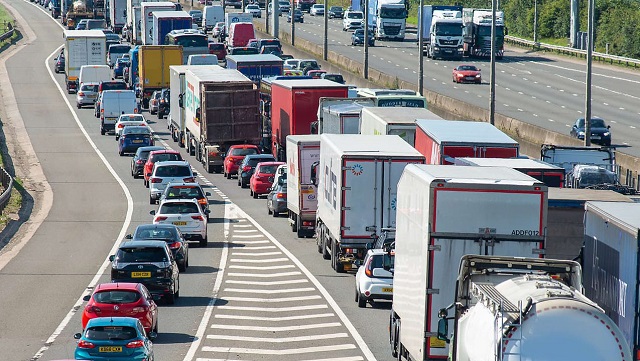

From the Daily Caller News Foundation
By Mariane Angela
Interior Secretary Doug Burgum warned on Fox Business Tuesday about America’s deepening energy shortfall and said that misguided climate policies could give China the upper hand in both the global energy race and artificial intelligence development.
House lawmakers voted 246-164, with support from 35 Democrats, to overturn a Biden-era EPA rule that lets California enforce a de facto national ban on gas-powered cars by 2035. During an appearance on “Kudlow,” Burgum said that U.S. energy shortfalls could allow China to outpace America in artificial intelligence and other power-hungry technologies.
“The real energy emergency that we have right now is that we don’t have enough energy in this country. We’re losing the AI arms race to China, and we’ve got to have more energy and more power right now in the country. And so that’s one of the things that we’re focused on right now,” Burgum told host Larry Kudlow.
Burgum blasted California’s aggressive emissions standards, which he said have effectively become national policy.
WATCH:
“Let’s start with California, Larry. That would be a great idea, because there’s 14 other states that followed California. So basically we’re stuck right now. Automakers feel like they’ve got to build two kinds of cars in America, one for California standards and one for the rest of the country,” Burgum said. “Of course, we know that the California standards are based on a bunch of falsehoods around emissions, because if we want zero carbon fuels, it’s much cheaper.”
Burgum took particular aim at electric vehicle subsidies, calling them a boondoggle built on climate ideology. He also called electric vehicle subsidies economically reckless since the cost of avoiding a single ton of carbon dioxide exceeds $900.
“It’s 10 to 15 times cheaper to have zero carbon liquid fuels than it is to subsidize EVs. The EV subsidies, where the real bank was, the thing that was really breaking the bank, over $900 for an avoided tonus of CO2, and all of that built around climate ideology,” Burgum said.
Republican Pennsylvania Rep. John Joyce introduced a resolution under the Congressional Review Act to stop California’s zero-emission vehicle mandate, which several other states have adopted. If the Senate doesn’t act, the Environmental Protection Agency would face a lengthy rulemaking process to reverse the policy that will allow California’s stricter standards to remain in effect for years.
The states that have opted in to California’s auto rules include Colorado, Delaware, Maryland, Massachusetts, New Jersey, New Mexico, New York, Oregon, Rhode Island, Vermont, Washington, and the District of Columbia.
-

 COVID-192 days ago
COVID-192 days agoUS Government ADMITS It Approved Pfizer’s COVID “Vaccine” Despite Knowing About a Long List of Trial Violations
-
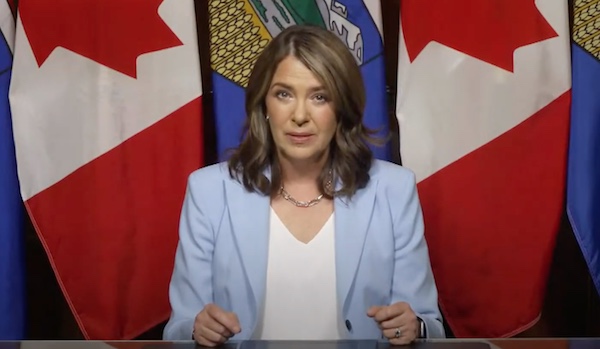
 Alberta2 days ago
Alberta2 days agoPremier Smith seeks Alberta Accord: Announces new relationship with Ottawa
-
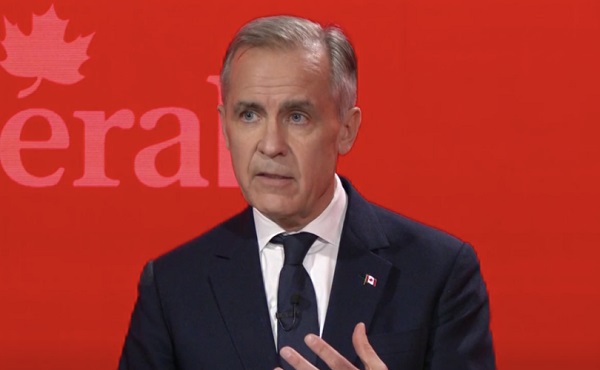
 Energy2 days ago
Energy2 days agoIs the Carney Government Prepared to Negotiate a Fair Deal for the Oil, Gas and Pipeline Sectors
-

 Business2 days ago
Business2 days ago‘Got To Go’: Department Of Energy To Cut Off Billions Of Dollars’ Worth Of Biden-Era Green Energy Projects
-

 Artificial Intelligence2 days ago
Artificial Intelligence2 days agoThe Responsible Lie: How AI Sells Conviction Without Truth
-

 Alberta1 day ago
Alberta1 day agoSaudi oil pivot could shake global markets and hit Alberta hard
-

 Agriculture1 day ago
Agriculture1 day agoCanada is missing out on the global milk boom
-
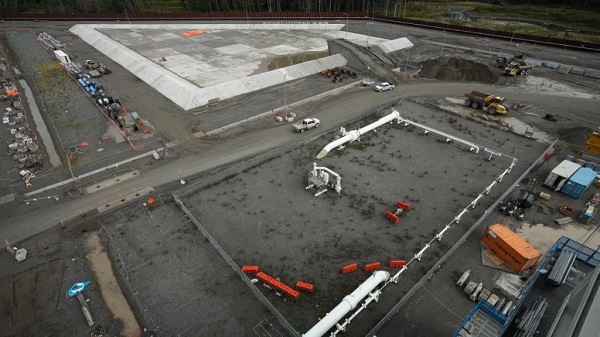
 Energy20 hours ago
Energy20 hours agoIt’s time to get excited about the great Canadian LNG opportunity



